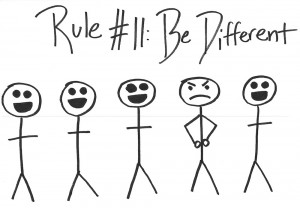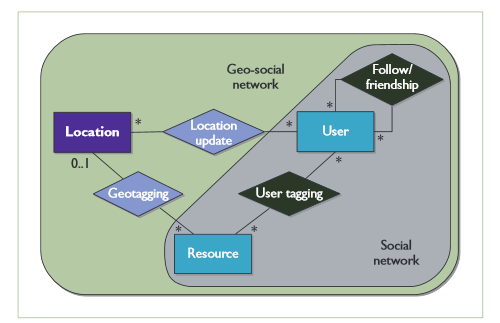Over the last few years the online world has been dominated by few large social networks whereas there are many more – some targeted at specific communities or completely niche but with unique features. Here, we picked 8 Online Social Networks, both those commonly known and those less popular, but all with some interesting functionalities that could be incorporated into our Small.World project:
![]() About.me – an online identities platform features:
About.me – an online identities platform features:
- One-page user profiles with short biographies, linked to all other social networks associated with the member.
While About.me works more like a personal website, Small.World takes an advantage of using Facebook & Google+ accounts but it’s a fully operating social network itself.
![]() AsmallWorld – an exclusive travel and social club network, based on small worlds concept. A slight coincidence with our project’s name…
AsmallWorld – an exclusive travel and social club network, based on small worlds concept. A slight coincidence with our project’s name…
- Personalised travel advice.
- Members-exclusive events.
- Membership on recommendation only, capped at 250,000 users.
Our service also uses travel advice but it will always be given by your trustees. And the membership is not exclusive at all.
![]() Couchsurfing – a hospitality exchange social network.
Couchsurfing – a hospitality exchange social network.
- Private hosts met travellers.
- Strongly based on recommendation.
- More than trust – in the past there was a credit card and address verification.
A question of trust is taken very seriously by Small.World. Our members recommend places but more importantly they recommend people.
![]() Diaspora – a general purpose, distributed social networking service.
Diaspora – a general purpose, distributed social networking service.
- Decentralised (data stored on local servers).
- Members can add different aspects of their lives and share certain posts/events/etc. only with people associated with certain aspect (e.g.. job-related posts/events with colleagues
Just like in Diaspora, in Small.World posts are contextual. The main difference is that the context is always geographical, i.e. related to the particular location.
![]() Fotki – a large media sharing social networking website.
Fotki – a large media sharing social networking website.
- Highly customisable layout (skins and manually changed colours).
- RSS feeds.
Small.World does use feeds but they are only feeds from your friends or mutual friends of yours. Small.World aims for simplicity and consistency. Users can choose from several colour themes but nothing more as cross-compatibility is the priority.
![]() Foursquare – a search and discovery service for mobile devices.
Foursquare – a search and discovery service for mobile devices.
- Short tips on locations.
- Search locations in surrounding area by tastes. ‘Tastes’ serve as attributes e.g. for restaurants this would display the ones that are good for karaoke, ice cream, steaks or so. Time of the day would trigger different results, e.g. restaurants serving breakfast in the morning.
Using the similar concept, both tips and “tastes” in Small.World are fuelled by your friends only. We believe that the community can provide you with the best tips, recommendations and other information you need.
![]() Glympse – a mobile platform for tracking people to meet up with.
Glympse – a mobile platform for tracking people to meet up with.
- Real time friends tracking with detailed information.
Glympse is technically not a full-blown social network. Small.World has similar friend tracking built-in as a part of a comprehensive service. Our tracking gives you only the information you need. And it’s more secure – you can track groups of users but they will always be people you really know.
![]() LinkedIn – popular professional, business-oriented network.
LinkedIn – popular professional, business-oriented network.
- Members can see the degree to which they are connected to each other, with common characteristics such as location, skills or school.
- Members can see who viewed their profile.
LinkedIn shows interrelations in the sidebar panel. Small.World goes beyond that and displays them right in your friend’s profile and points to everything you have in common.
All the web services described above have some great interesting features but it’s only Small.World that combines some of those ideas using fine-tuned solutions and provides a great integrated user experience.


